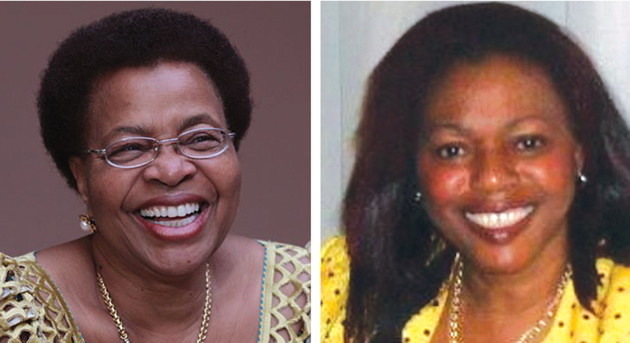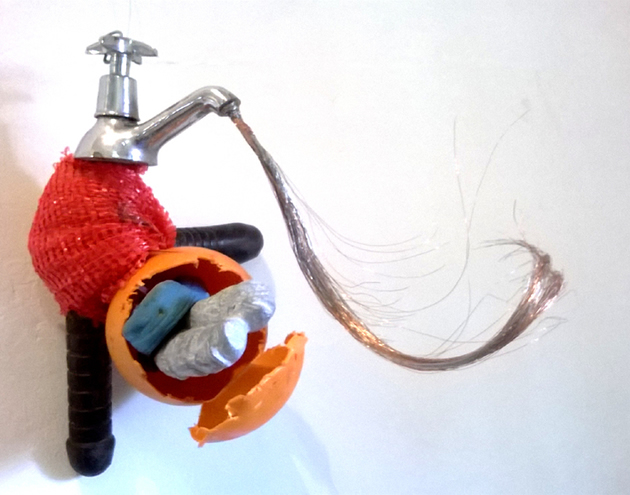Zim women’s huge appetite for success

 Victoria Ruzvidzo Business Focus
Victoria Ruzvidzo Business Focus
Zimbabwean women have a huge and raw appetite to succeed and make a difference in the nation. This is a conclusion I have reached after attending several seminars and workshops and also interacting with women at all levels in society.
From the granny in Binga doing basketry, to the chairperson of a large corporation, women exude unequalled passion to contribute meaningfully to development. It comes naturally to this lot.
On Tuesday I had yet another opportune moment to attend an entrepreneurial workshop where women from grassroots and those that are up their in business or in their professions. The meeting was organized by the National Association of Businesswomen (NABW-Zimbabwe) under the Graca Machel Trust.
What struck me the most at the meeting was one woman whose age must have been between 70 and 75 who stood up and confidently introduced herself and described the business she is in, exuding amazing energy in the process. It really got me thinking that this country is indeed blessed to have womenfolk so passionate about what they do, which obviously contributes immensely to the overall Gross Domestic Product.
The women, who are in the majority, at 52 percent of the population as at the latest census in 2012, can help fuel the implementation of the Zimbabwe Agenda for Sustainable Socio-Economic Transformation through their various businesses and professions.
The blue-print needs all hands on deck. It requires that everyone operates at full throttle. Indeed a chain is as strong as its weakest link so it requires that women do their bit as well.
Are they not doing that already? They are but they need to be capacitated so they can reach their full potential.
At the seminar, one of Zimbabwe’s most successful businesswomen, Sue Peters, inspired many through her testimony, narrating her journey to the top since the 1980s to date.
It was so inspiring to note that an incubation programme she introduced for hairdressers and beauticians had empowered hundred of women and girls while other operators had replicated it.
She spoke of how she was giving to charity and capacitating orphans and other less privileged members of society.
Her story touched on all four clusters under Zim Asset which are Food Security and Nutrition, Social Services and Poverty Eradication, Value Addition and Beneficiation and Infrastructure and Utilities.
It got me thinking that women have always been multi-skilled and will not stop at nothing once they set their minds on doing something.
They are resolute and committed 100 percent once they embark on a project . But as raised by women at the seminar, such ingredients to success as capital, skills, market access remained major challenges that required redress.
Ministry of Women Affairs, Gender and Community Development’s deputy director Mr Wisdom Karonga, in his speech acknowledged the constraints and stated that Government alone could not tackle the challenges effectively, particularly in terms of funding.
He implored local and foreign partners to assist in this regard. Of course Government cannot do it all. It is facing critical funding challenges and has thus been unable to avail huge amounts for women, youths and other portfolios.
“The current business development agenda is going towards ‘womenomics’, where women are taking the leading role in developing businesses which drive the world economy,” he said.
“Most of the women’s needs are universal in our region and continent, some of these include support to start up business, to accessing credit and suitable premises for production purposes as well as equipment and tools and marketing support.
“In terms of supporting women, Government has put in place an economic blueprint, ZimAsset which will guide us for five years up to 2018,” said Mr Karonga.
The Ministry has identified that major needs for women are support for business start up, support to access credit, access to suitable business premises, access to equipment and tools, marketing support, legal and regulatory requirements and support to formation of group
It is in this regard that a partnership between Zimbabwean businewomen organizations and the Graca Machel Trust, to form the NABW, is expected to go a long way in bridging the gap in terms of funding, training an dother aspects of business.
This week NABW hosted Edith Wanjohi, Graca Machel Trust programme manager, women’s rights and programme officer Tebello Ralebitso who came for the workshop and to consolidate the relationship with Zimbabwean women.
In her presentation, Mrs Wanjohi said her organization was concluding a deal with the African Development bank, to finance women’s businesses in Africa, Zimbabwe included.
Another facility would soon be in the offing for the agricultural sector.
NABW Zimbabwe chairperson Ms hazel Chinake said as much and was upbeat that the initiatives by Graca Machel would take Zimbabwean women to greater levels in terms of their contribution to the country’s overall well-being.
The Graca Machel Trust, which has also launched women’s programmes in nine other countries under the NABW initiative, has said its objective is to bring women together to speak with one voice and impact their respective nations and the continent at large.
”The time has come for women to come together and speak with one voice. We should congregate as women to influence policy-making and implementation and you will notce that when you come with one voice, you can sit and this minister will give you an ear,” said Mrs Wanjohi. NABW intends to assist women in agriculture, mining, infrastructure development, media, tourism and information technology as its main thrust.
African women could impact their nation through collective effort, she said.
She stressed that the time to pull each other down was over “and we now need to work together as partners to advance each other”.
Indeed although the problem is not peculiar to Zimbabwe, women have largely failed to reach their full potential because they pull each other down as they compete for the top spot, oblivious of the fact that if one wins we all win.
Smart partnership concepts have turned potentially irretrievable situations into success stories, something that women need to be made aware of. Men often work together in terms of pulling resources together, giving advice and supporting each other’s ideas but such traits have not been in abundance where the women folk is concerned but we thank God that that is changing slowly.
The challenges confronting the economy together require a more positive and concerted effort that can only come about when we work in unity. Everyone has a critical role to play.
But the message that also needs to go home is that women have the wherewithal to contribute to socio-economic development and every effort must be made to ensure they take their rightful position in the economic arena.
In God I Trust!








Comments